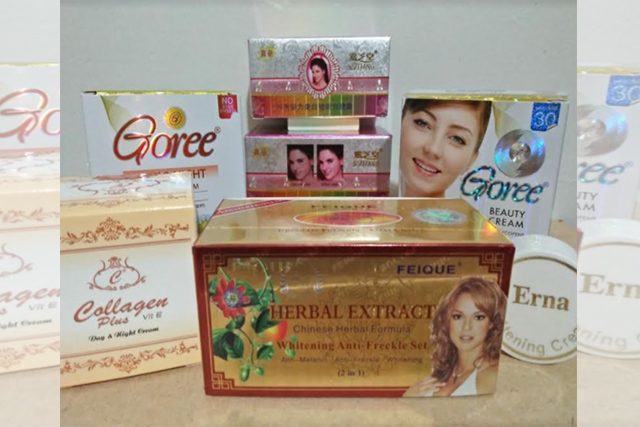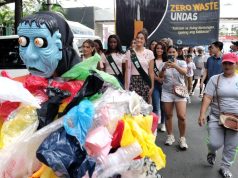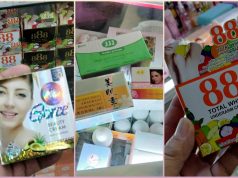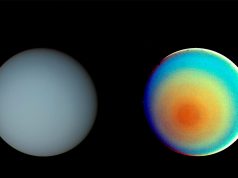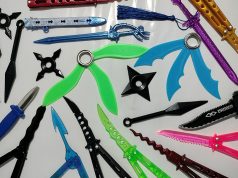An environment organization recently condemned the unabated trade of smuggled mercury-laden skin whitening products, citing the global ban on mercury in cosmetics.
The green group flagged the trade in line with the National Poison Prevention Week, marked every last week of June.
EcoWaste Coalition noted that the Minamata Convention banned cosmetics, including skin lightening products containing mercury above 1 part per million (ppm).
The convention is an international treaty that aims to protect people’s health and the environment from the harmful effects of mercury and mercury compounds.
The organization also cited that under the ASEAN Cosmetic Directive (ACD) under Annex II, mercury and its compounds are banned in cosmetic product formulations.
The country’s Food and Drug Administration thus prohibited the same cosmetics items with more than 1 ppm of mercury.
Thony Dizon, chemical safety campaigner of the group, stressed that repeated application of such whitening creams can “damage the brain, nervous system, kidneys and the skin itself.”
“We strongly deplore the unabated trade of contraband facial creams contaminated with mercury that can harm a person’s health,” Dizon said.
EcoWaste also cited seven skin whitening brands it brought from retail stores in Binondo and Sta. Cruz as among these smuggled products.
These are:
- Collagen Plus Vit E Day Day & Night Cream
- Erna Whitening Cream
- Feique Herbal Extract Whitening Anti-Freckle Set
- Goree Beauty Cream with Lycopene
- Goree Day & Night Beauty Cream
- S’Zitang 7-Day Specific Whitening and Spot AB Set
- S’Zitang 10-Day Whitening and Spot Day Night Set.
The organization further stated that when the products were screened using a handheld X-Ray Fluorescence (XRF) analyzer, they contained an alarming range of 1,259 to 31,300 ppm levels of mercury.
This was the highest mercury content EcoWaste detected in two variants of the “made in Pakistan” Goree Beauty Cream. The FDA banned these creams in 2017.
“We therefore urge local government, health, police and customs authorities to conduct an all-out crackdown on the sale of these dangerous cosmetics and impose the full force of the law on violators,” Dizon said.
“The authorities need to identify and bring the perpetrators of this toxic trade to justice. This will send a strong and unequivocal message to those who profit from this trade of poison cosmetics to stop or get fined and/or jailed,” he added.
In a briefer titled “Mercury in Skin Lightening Products”, the World Health Organization also enumerated some possible adverse health effects of inorganic mercury in these creams and soaps.
“Adverse health effects of the inorganic mercury contained in skin lightening creams and soaps include: kidney damage, skin rashes, skin discoloration and scarring, reduction in the skin’s resistance to bacterial and fungal infections, anxiety, depression, psychosis and peripheral neuropathy,” the WHO said.
EcoWaste also campaigned against color-based bias, prejudice and discrimination amid the still prevalent skin whitening or lightening culture.
It also urged the cosmetics industry to promote diversity in beauty instead of “white-centric” concepts and ideals of beauty.

